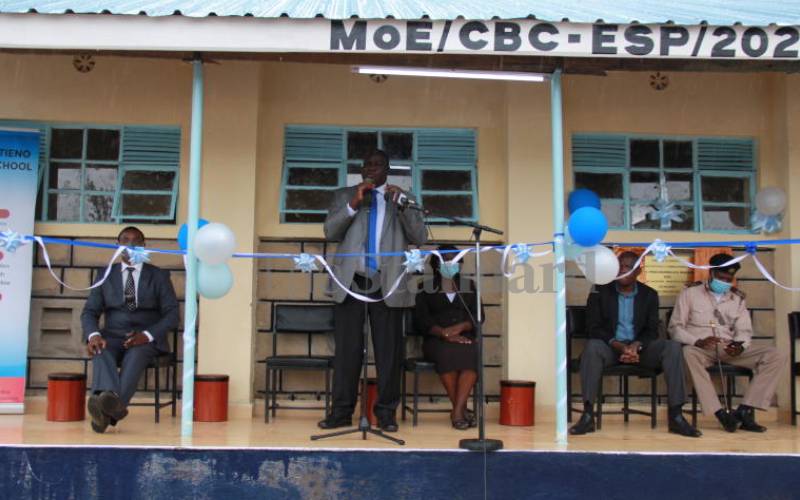×
The Standard e-Paper
Kenya’s Boldest Voice

PS Julius Jwan has announced that the junior secondary school will be domiciled both in secondary and primary schools. [James Omoro, Standard]
The government has cleared the confusion on where Junior secondary schools will be domiciled when the first lot of students learning through the Competency-Based Curriculum (CBC) complete their primary education.